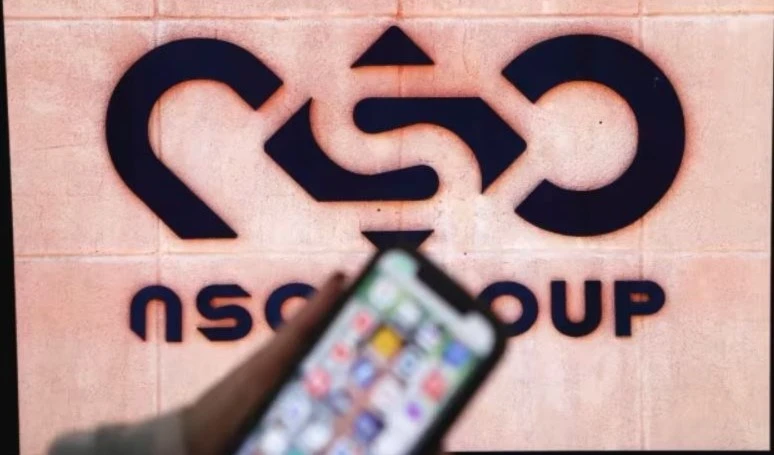Three Bahraini activists found hacked with Israeli Pegasus
Evidence is mounting that NSO Group spyware is being used to attack the Gulf state's allies and adversaries.
-

Protestors commemorating the popular uprising that swooped through the country in 2011 (Archive)
The Bahraini regime has long been under fire for repeated human rights violations; nevertheless, it seems that the Israeli NSO Group spyware has opened up new avenues for Bahraini repression.
Added to the violations the Bahraini regime continues to commit against its people, a new investigation has unmasked how the notorious Pegasus spyware from the Israeli NSO Group was used to infect the devices of three activists in Bahrain, revealing once again how dangerous the spyware is to critics of repressive governments.
Digital rights group Red Line 4 Gulf unveiled the targeting of the three - a lawyer, a mental health counselor, and an online journalist - with technical assistance from Amnesty International and the University of Toronto's Citizen Lab.
Between June and September 2021, Pegasus targeted Mohamed Al-Tajer, Sharifa Swar, and a third person who has asked to remain unnamed due to fear of reprisals. All three have been vocal in their criticism of Bahrain's repressive regime.
Mohamed Al-Tajer is an attorney who represented the families of two victims who died in 2011 after being tortured by Bahraini security forces. Mohamed's phone was infected with Pegasus software in September 2021, according to forensic examination by Amnesty International and Citizen Lab.
"After all of the years of my career as a lawyer, there was nothing I could have done to protect myself from a zero-click hack. The state can hack into your device and gain access to all of your personal information, work information, financial information, emails, and personal and family photos," he said sorrowfully.
Sharifa Swar, the second target, is a mental health counselor who divulged on her Instagram account that the Bahraini Ministry of Health is involved in drug trafficking. The Pegasus malware was discovered on her phone after a forensic investigation was conducted in June 2021. In December of the same year, she flew from Bahrain to the United Kingdom, where she applied for asylum.
The third target is an online journalist who has asked to remain anonymous for fear of retaliation by Bahraini authorities. The journalist is well-known in Bahrain for reporting on the 2011 Bahrain uprising as well as current protests. The journalist's phone was infected in September 2021, according to the investigation.
This study was conducted as part of the Pegasus Project, a global media consortium led by Forbidden Stories, a Paris-based media non-profit, with technical assistance from Amnesty's Security Lab, which conducts forensic tests on mobile phones to detect signs of the Israeli Pegasus spyware.
Last year, the United States placed "Israel's" spyware maker NSO Group, the corporation behind the notorious Pegasus, on its list of restricted companies.
Pegasus can infect a mobile phone and give the spyware user full access to phone calls, text messages, encrypted messaging, and images if it is successfully installed against a victim. It can trace a user's location on their phone and turn it into a remote listening device.
Bahrain was previously identified as a potential client of NSO Group by the Pegasus Project, with hundreds of Bahraini phone numbers included in a leaked list of 50,000 potential Pegasus targets.
Three other Bahraini activists were hacked by Pegasus between 2019 and 2020, according to previous forensic work by Citizen Lab and Front Line Defenders: Yusuf Al-Jamri, an online writer in exile in the UK; Moosa Abdali, an activist exiled in the UK; and Ebtesam al-Saegh, a human rights defender resident in Bahrain. In addition, the Pegasus Project has identified more than two dozen members of Bahrain's government as prospective targets, including more than 20 MPs, cabinet officials, and members of the country's royal family.
One fact is clear: Bahrain is stifling human rights through the double-edged tools of cyber-espionage, despite global concerns that the regime was deploying Israeli spyware techniques to spy on individuals at home and abroad. Following the normalization process, it seems Bahraini authorities are now more emboldened than ever to use Israeli tools and personnel.

 4 Min Read
4 Min Read












